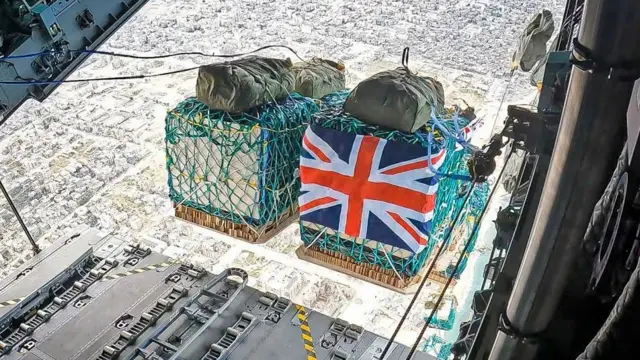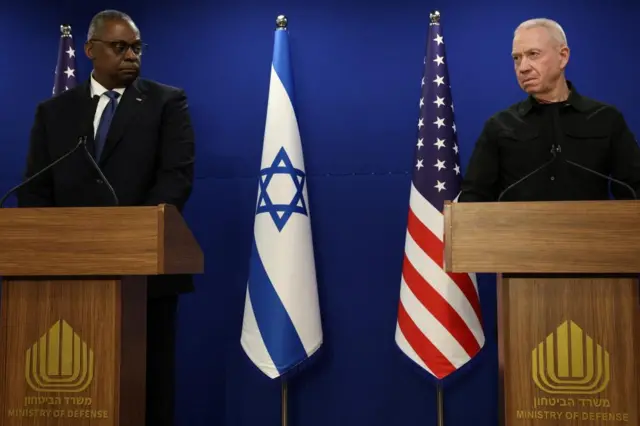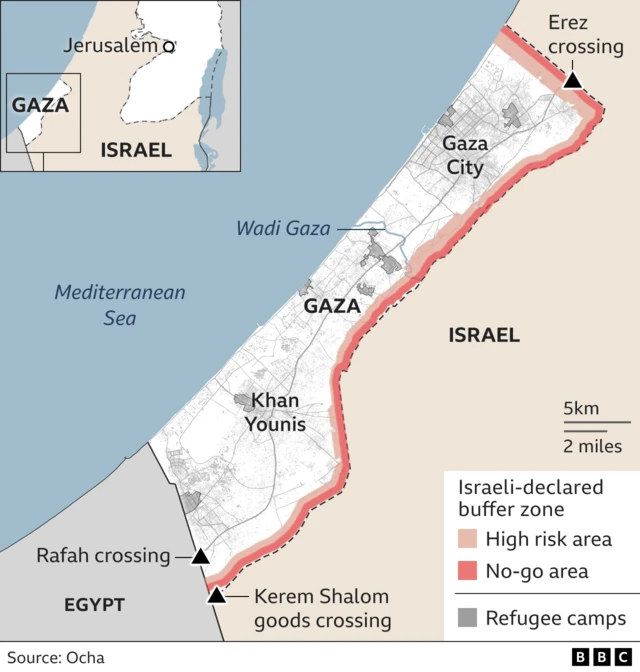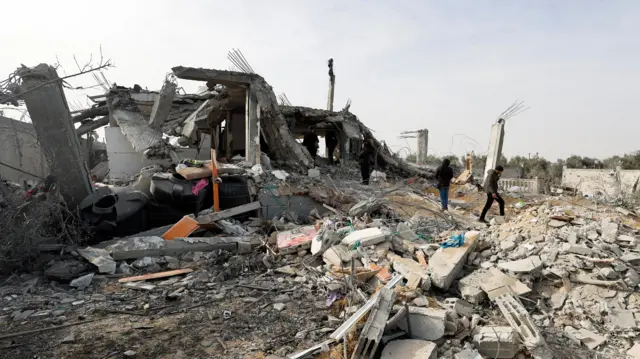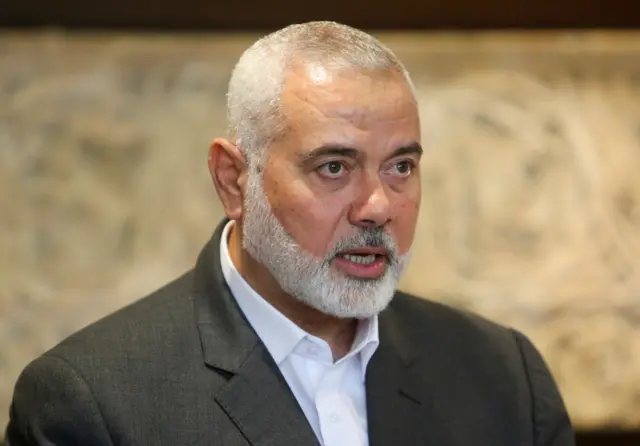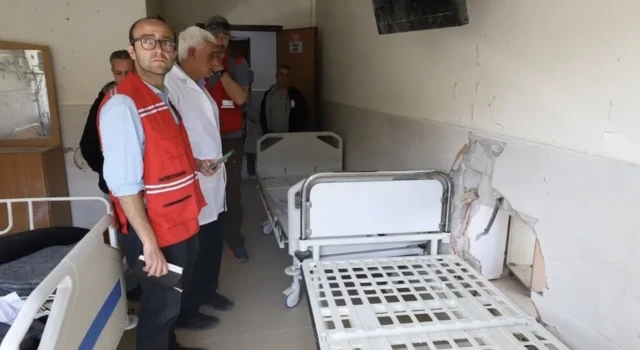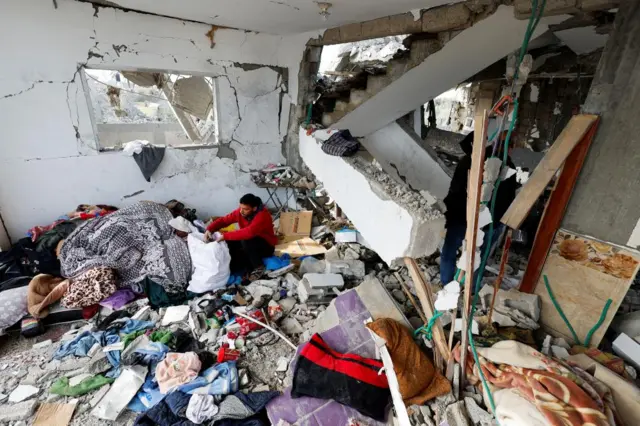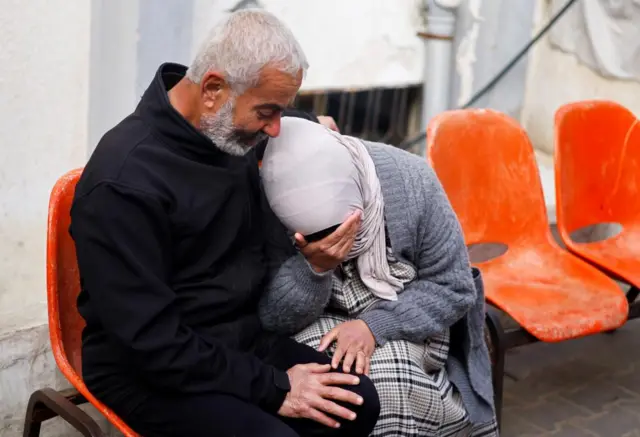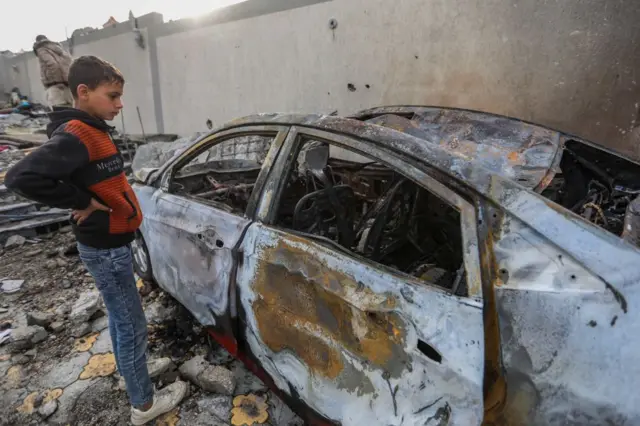Negotiations remain most likely route for ceasefirepublished at 12:07 GMT 26 March 2024
 Hugo Bachega
Hugo Bachega
Middle East correspondent, in Jerusalem
Realistically, there was no expectation that the passing of a UN Security Council resolution calling for an immediate ceasefire in Gaza would lead to any pause in the fighting.
The vote was an important symbolic moment as the US, Israel’s closest ally, did not veto the text - as it had done on three previous occasions.
However, concerns remain about Israeli plans to launch an incursion into the southern city of Rafah – where more than one million Palestinians are sheltering.
The idea is opposed by virtually everyone outside Israel but the country’s Prime Minister Benjamin Netanyahu has vowed to go ahead with it, saying it is the only way to defeat Hamas.
There are no signs any offensive is imminent, and it remains unclear whether he would be able to launch an offensive amid strong American opposition.
The most likely route towards a ceasefire is through negotiations being mediated by Qatar and Egypt.
Any deal is expected to include the release of hostages being held in Gaza in exchange for Palestinian prisoners being held in Israeli jails.
But talks are difficult. Hamas says a ceasefire should mean the end of the war and the withdrawal of Israeli forces from Gaza, which is rejected by Israel.
